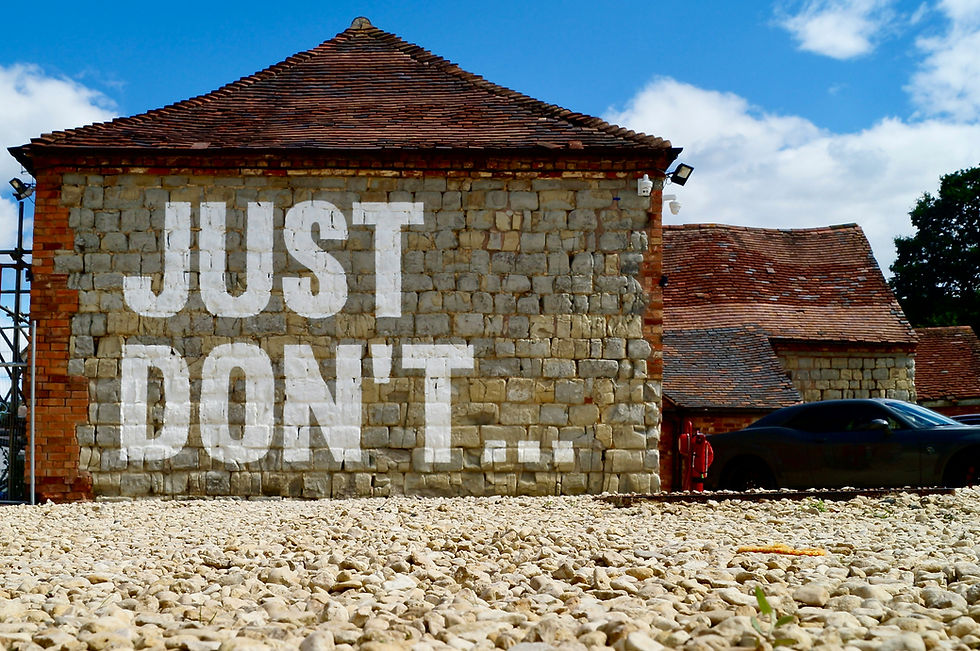Whiteness Made My Kenyan Partner Black.
- Jessica Kiragu
- Oct 3, 2025
- 3 min read
This came up in a conversation with my partner the other day. Someone had offered feedback about my writing—that I should start capitalizing the b in black. They explained that it’s because “Black” refers to ethnicity.

I’ve thought about this a lot.
So I went back to my partner. I remembered from past conversations that, as someone born and raised in Kenya, he doesn’t feel a connection to Black ethnicity here in the U.S. Several years later, I wanted to check again—did that change? Does he want me to capitalize Black?
His answer, the same as before—he doesn’t.
Now, I know there are good reasons people choose to capitalize. Major outlets like the AP and New York Times have standardized it. Foundations an organizations have adopted it. I understand why many see it as an important shift, and I don’t take it lightly. I don’t want to be disrespectful or divisive.
But for me, my main reason for not capitalizing black is because of my partner—because it doesn’t resonate with his identity. Our kids are still finding their way, still choosing how they’ll relate to Black identity in the U.S. If they want me to capitalize, I absolutely will.
When I write about race, I’m writing with my family in mind. The lowercase b points toward something I wish were possible—that race would have no power to dictate our safety, opportunities, or belonging. That it wouldn’t shape our lives so forcefully.
But of course, it does. Race does complicate our lives. It undermines our safety. We can’t escape its impact, so we have to reckon with it.
And yet—something about this push to capitalize Black sits uneasily with me. Not because I’m against people doing it, but because of who gets to set the rules. In the U.S., whiteness has long had the power of defining what counts as “correct.” It decides which histories are taught, which accents sound “professional,” which bodies are considered beautiful, which lives are treated as valuable. Whiteness has been the ultimate definer.
So when mostly white-led organizations announce that this is the right way to write about race—capitalize the B, full stop—it feels familiar. Like another moment where whiteness names the terms, and the rest of us are expected to follow along. It feels like a small win that keeps us from looking at the larger harm.
Because the deeper truth is this—whiteness is the reason my Kenyan partner was ever called Black in the first place. Whiteness is what collapsed his identity—his people, his culture, his story—into one imposed label. Whiteness is what tries to flatten my biracial, binational kids into a single category. Whiteness is what created these distinctions and demands they stick.
That’s why I’m wary of which fights I take up as a white person. I know myself enough—I was taught to protect whiteness. I learned to look away from real issues of racial harm, or get caught up in arguments that led nowhere. I’ve wasted energy on debates about “intentions,” or playing devil’s advocate, or shutting down conversations because my feelings got too big.
Underneath those responses was my own uncertainty—about my identity as a white person, about my role in racial inequity, about how to show up for the people I love. Whiteness taught me to react in ways that were out of alignment with the values I actually care about—justice, freedom, care, connection. And it still shows up sometimes, messy and confusing, in daily life.
So maybe some folks will say I’m wrong on this one. Maybe they’ll say capitalizing Black has nothing to do with whiteness. I can hear that. I know I don’t have it all figured out.
But in this case, I’m choosing to stay close to my partner’s experience, and to the particular story of our family. For him, for now, it’s black. And so that’s what I’ll keep doing.




Comments